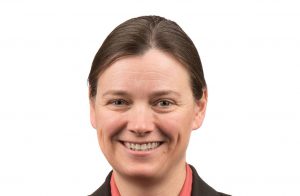
The woman at the helm of Lake Macquarie Council in NSW has taken out a top award for transforming council operations and tackling bureaucracy through collaboration.

And she hopes her changes will pave they way for councils to capture the upcoming millennial generation of future leaders.
CEO Morven Cameron was last Thursday recognised for her outstanding contribution to local government at the 2019 Minister’s Awards for Women in Local Government.
The annual awards this year recognised 22 women for their contribution to the sector and for their work smashing the glass ceiling, Minister for Local Government Shelley Hancock said.
“These talented women have shown exceptional leadership in not only serving their councils and communities but increasing participation of women in the State’s local government sector,” Mrs Hancock, the first female speaker of the NSW Legislative Assembly, said.
Ms Cameron was recognised in the general manager or senior staff of a rural council category for her leadership in the industry, which included instigating structural change to unlock more efficiencies within council.
Challenging the top-down approach
Ms Cameron was instrumental in Lake Macquarie Council’s restructure, which saw the organisation move away from a top-down approach to enable more fluid movement and collaboration in the organisation.
Underpinning the restructure is Ms Cameron’s desire to move away from the “old-fashioned” top-down structure of most councils, which often includes the notion of a CEO needing to “behave like the smartest man or woman in the room,” she says.
Ms Cameron wants to challenge the hierarchical structure in many councils – instead pushing for a flatter organisation structure– one which she says women and other often disadvantage groups are more likely to thrive in.
The restructure, which started in 2018, saw council host a series of workshops with councillors and employees to enable staff to determine the structure – with the only perimeters being that the structure had to be about efficiency and improving the level of service at council.
“It gave everyone much more of an opportunity to participate and play a part in the type of organisation it would be and most importantly in terms of the actual team they are going to work in.”
The shake-up ultimately saw 38 teams within council move around the organisation – with 90 per cent of changes coming from staff, and just 10 per cent from the executive team.
Just a few months in the outcome has noticeable, with more participation between different parts of the organisation resulting in “significant efficiencies” across numerous fields including capital works and asset planning.
“It puts everyone on a much more even footing… It’s ultimately about efficiency and being able to make as many decisions as possible at thrive.”
The restructure has now led to wider reforms within council which will see the organisation experiment over the next 12-18 months with testing different solutions to key issues facing council.
“It is a mindset shift which we started last year but that has now introduced broader changes,” Ms Cameron said.
With councils over the next few years set to hire a growing number of millennials, Ms Cameron says that this fluid structure is going to become increasingly essential for councils to capture the next generation of talented workers.
“Seventy per cent of the employees coming to our workplace in the next 4-5 years will be millennials. They’re going to expect much flatter structures and more collaborative places to work.”
Desire to make a difference
Ms Cameron says her work in local government has been driven by a desire to make a difference in the local community.
“As soon as I realised that making a contribution to your community was what local government is all about then I really felt it was the industry I wanted to work in and stay working in.”
Ms Cameron says her passion for the job helped her to leapfrog potential barriers to obtaining a senior leadership position as a woman.
“There’s undoubtedly an issue with women in leadership positions in local government. You only have to look at NSW where I think 20 out of 118 councils CEOs are female,” she told government news.
“In terms of being a female in the industry, I just got on with it because I had to.”
Ms Cameron says she likes to view challenges as “opportunities”, and hopes to inspire other women to push for leadership positions – both by being confident in themselves and looking to other women for support.
“I would like to think anytime anybody in a senior position gets an award and some media about it, hopefully it inspires other women to have a go because there’s definitely an imbalance,” she said.
Lake Macquarie Mayor Cr Kay Fraser said Ms Cameron’s positive style of leadership and collaborative approach has empowered people across the organisation.
“Since Ms Cameron’s appointment as CEO 18 months ago, the organisation has moved from a traditional hierarchical structure to a more flexible and collaborative one that enables staff to be more responsive in the way they work and serve their community,” Cr Fraser said.
“Ms Cameron has challenged stereotypes to become the first CEO/General Manager of Lake Macquarie City Council. She is a role model for women who aspire to leadership positions within the organisation, in local government and beyond.”
Council’s Customer Service Officer, Renee Keir, also received High Commended in the Women in Traineeships or Apprenticeships, Rural/Regional for her role in promoting careers with Lake Macquarie City Council and in local government more broadly.
Other female trailblazers recognised in the Minister’s Awards for Women in Local Government:
Elected Representative from a Metropolitan Council
- Winner: Cr Wendy Waller, Liverpool City Council
- Winner: Cr Roslyn Harrison, Northern Beaches Council
- Highly commended: Cr Reena Jethi, The Hills Shire Council
Elected Representative from a Rural or Regional Council
- Winner: Cr Susan Price OAM, Moree Plains Shire Council
- Highly commended: Cr Phyllis Miller OAM, Forbes Shire Council
General Manager/Senior Staff Member – Metropolitan Council
- Winner: Simone Plummer, Sutherland Shire Council
- Highly commended: Therese Manns, Randwick City Council
General Manager/Senior Staff Member – Rural or Regional Council
- Winner: Morven Cameron, Lake Macquarie City Council
- Highly commended: Melissa Boxall, Shellharbour City Council
Non-Senior Staff Member – Metropolitan Council
- Winner: Belinda Koytz, City of Canada Bay Council
Non-Senior Staff Member – Rural or Regional Council
- Winner: Stephanie Mowle, Goulburn Mulwaree Council
- Highly commended: Deborah McDonald, Singleton Council
Women in a Non-Traditional Role – Metropolitan Council
- Winner: Olivia Simons, City of Sydney Council
- Highly commended: Alissa Jones, City of Newcastle Council
- Highly commended: Margaret Diebert, Liverpool City Council
Women in a Non-Traditional Role – Rural or Regional Council
- Winner: Adrienne Pierini, Cobar Shire Council
- Highly commended: Tegan Muirhead, Wagga Wagga City Counci
Women in Traineeships or Apprenticeships – Metropolitan Council
- Winner: Sarah Tracy, Penrith City Council
Women in Traineeships or Apprenticeships – Rural or Regional Council
- Winner: Acacia Johnston, Shellharbour City Council
- Highly commended: Renee Keir, Lake Macquarie City Council
- Highly commended: Sophie Broadbent, Wingecarribee Shire Council
Special Achievement Award
- Winner: Carmel Krogh OAM, Shoalhaven Water.
Comment below to have your say on this story.
If you have a news story or tip-off, get in touch at editorial@governmentnews.com.au.
Sign up to the Government News newsletter.